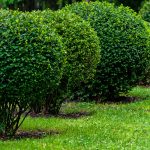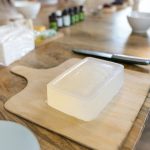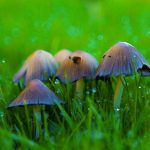We know that fertilizer with organic matter has the ability to add more nutrients to the soil, increasing its fertility and viability. A cheap way to make compost is by using the organic waste that we generate daily in our home. In this way, we will achieve a triple benefit, reducing the use of synthetic fertilizers on the soil, less expenditure on fertilizers and use of household waste (less garbage generated).
In this GreenEcology article, we reveal the answer to how to make homemade organic fertilizer for plants, giving you several ideas and examples.
Why use organic fertilizers instead of synthetic ones
There are many advantages of using organic fertilizers and fertilizers and more if they are homemade, because natural is always healthier and, in addition, we will be reusing waste. It should also be taken into account that there are several disadvantages of synthetic fertilizers, and these are some of them:
- They contribute to climate change.
- They can cause contamination in water, soils and rivers, as a result of the washing effect of rainfall.
- They affect plants and nutrients due to excess minerals: synthetic fertilizers are usually highly concentrated and when used in excess they can worsen the quality of the soil, rather than improve it.
- They contribute to soil acidification, favouring desertification.
- They can cause poisoning when handled without proper protection.
Learn more about these products in this other article from EcologíaVerde on Organic fertilizer: what it is, benefits and how to make it.
Organic plant fertilizers and fertilizers – the most recommended
These are some of the most recommended homemade organic fertilizers for plants for their benefits for the soil and crops and, also, for their ease of obtaining and application:
Manure
It is undoubtedly one of the best and most beneficial organic fertilizers for the soil. Although it can be bought in garden stores, if you have chickens, goats, or rabbits, you can use their droppings. Rabbit droppings have the highest nitrogen content and can be added directly to the soil, but those of other animals must go through a previous composting process.
Banana peels
Bananas have a high potassium content, which is very beneficial as a nutrient for our plants, for example, it is very beneficial for flowering. After eating the fruit, we can use its peel to make homemade fertilizer.
Eggshells
Eggshells are very beneficial in the garden, as they provide nutrients such as calcium carbonate and serve as a pest repellent. The ideal is to crush the shells well to add them to our homemade fertilizer, although you can also make a powder with them and spread it well at the base of our plants.
Coffee grounds
After drinking a cup of coffee, we can take advantage of the coffee grounds or remains to make fertilizer for our plants, as they provide a good amount of nitrogen, which is very beneficial as a nutrient. They can also be mixed directly into the soil or spread on its surface. Here we talk more about the Ways to use coffee grounds in the garden.
Human urine
Urine urea has a very high content of nitrogen, phosphorus and potassium. Urine is a sterile product as long as the body that produces it is healthy. It can be dissolved in water at a ratio of 1:8 and added to our homemade fertilizer. We recommend this other post about Urine as an ecological fertilizer for agriculture and gardening.
Lawn
Once the grass or weeds have been cut, they can be added to our organic fertilizer, as they are very rich in nitrogen and retain some of the nutrients they have absorbed from the same soil on which they have grown.
Fireplace ash
The ashes of the fireplace provide large amounts of potassium and calcium carbonate, ideal for making our homemade fertilizer. It is important not to apply them directly around acidophilic plants or if the soil is alkaline.
Vinegar
The acetic acid in vinegar is very good for plants that require acidic soils. You can even dissolve the vinegar in water and water plants of this type directly.
Worm castings
Worm castings are one of the best organic fertilizers, all-natural and effective in improving plant health, so that they grow healthy and flower or bear fruit. The truth is that humus as such and with its most suitable composition is only obtained in forest soils, produced naturally by earthworms that live in the earth. However, you can get a very similar product at home, by making or buying a vermicomposter. Here’s how to make worm castings for plants.
Lentils
Lentil sprouts are great as a compost and rooter. If you want your new plants to take out more roots and grip better to grow without problems, do not hesitate to make these sprouts, crush them in water, strain them to obtain the liquid and remove the remains of the lentils and, finally, mix one part of the concentrate with ten parts of water to use this product as irrigation water to fertilize and root. In this other post we talk about How to make lentil sprouts.
How to Make Homemade Organic Fertilizer for Plants Step by Step
Although you can throw some organic waste directly into the soil, the ideal way for it to decompose is to follow a series of steps to make a homemade fertilizer or compost. These steps to make an organic fertilizer at home for your plants are:
- Make a few holes in the surface of a small container approximately one meter deep (or in a large or medium-sized container, depending on our needs).
- Place 4 or 5 fingers of ground inside (or more depending on the container).
- Add organic waste (examples mentioned above). It is important that they are not waste from any animal products.
- Cover with a little more soil.
- Every so often (approximately two weeks), stir well with a shovel, bringing the remains that are below to the surface and vice versa. This step is important to aerate our homemade fertilizer.
After a few weeks, worms, fruit flies and other insects begin to appear in our compost; a sign that the process of decomposition is taking place. When the soil becomes black, lumpy and the organic matter has completely decomposed, it will be ready to be applied in the garden or orchard. The smell of the fertilizer should be similar to that of wet soil. The process of making fertilizer usually takes two months, if we start in summer (the heat favors decomposition) and five months, if we start in winter. To apply, spread it by spreading it well around the roots of the plants, using a rake or other instrument.
To finish, we recommend you take a look at these other posts about Bokashi or bocashi compost: what it is and how to make it and about Orchid fertilizer: how to do it. We also encourage you to watch the video below about this process to make your own fertilizer.
If you want to read similar articles to How to make homemade organic fertilizer for plants, we recommend that you visit our Garden Care category.










